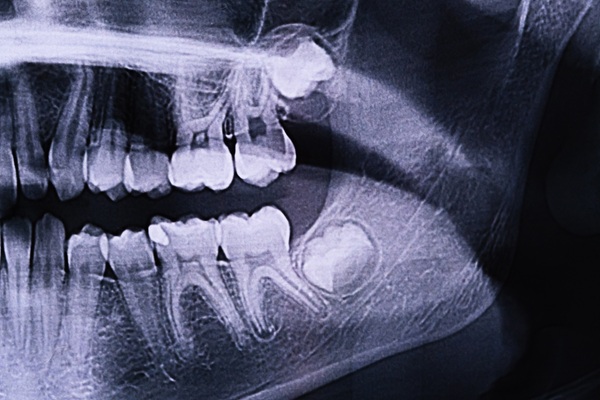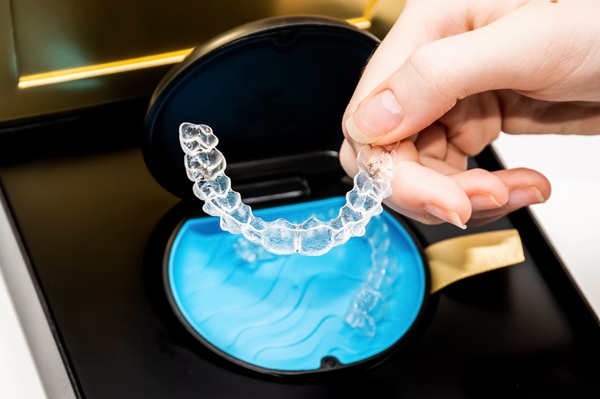When people think about teeth problems, they usually think of cavities, root canals or even staining from different food and drinks. However, when the wisdom teeth start growing in, a different kind of concern rises. If you’ve ever been told you have impacted wisdom teeth, you’re not alone, it’s actually quite common.
At Bellevue Hill Dental, many of our patients come in with questions like, “How do wisdom teeth get impacted?” or “Why do they hurt so much?” This blog explains what it means to have impacted wisdom teeth, why it happens, and what symptoms to watch out for.
Understanding Impacted Wisdom Teeth
To put it simply, impacted wisdom teeth are wisdom teeth that don’t have enough room to come in properly. Wisdom teeth are the last molars to appear, usually between the ages of 17 and 25. By this time, your other teeth have already taken up most of the space in your jaw.
When there isn’t enough space, the wisdom tooth can grow at the wrong angle, get stuck under the gum, or push against the tooth next to it. That’s what we mean by “impacted.”
In some cases, the tooth stays fully trapped under the gum. In other cases, it comes out halfway and then stops. Either way, this can cause a range of problems if not treated.
How Do Wisdom Teeth Get Impacted?
Common Causes of Impacted Wisdom Teeth
There are a few main impacted wisdom teeth causes that dentists often see:
- Lack of space in the jaw: Most people simply don’t have enough room for four extra molars to grow in.
- Tooth alignment issues: If your other teeth are crowded or crooked, wisdom teeth might not grow in the right direction.
- Thick gum or bone tissue: Sometimes, the gum or jawbone makes it harder for the wisdom tooth to break through.
- Genetics: If your parents had impacted wisdom teeth, there’s a good chance you will too.
These issues make it harder for wisdom teeth to come out naturally and can lead to them becoming trapped or misaligned.
What Are the Symptoms of Impacted Wisdom Teeth?
Signs to Watch For
Not all impacted wisdom teeth symptoms show up right away. Some people may not even realise there’s a problem until their dentist takes an X-ray. But if symptoms do appear, they can include:
- Pain or pressure at the back of your mouth
- Swollen or bleeding gums
- Difficulty opening your mouth
- Bad breath or an unpleasant taste
- Jaw stiffness or swelling
- Headaches or earaches
These symptoms usually happen because the impacted tooth is pressing against nearby teeth, or because bacteria is trapped under the gum around the tooth. If left untreated, it can lead to infection, tooth decay, or damage to nearby teeth.
What Happens If You Don’t Treat an Impacted Wisdom Tooth?
Ignoring impacted wisdom teeth can lead to bigger problems. The tooth can form a cyst (a fluid-filled sac) that can damage your jawbone or nearby teeth. You might also experience repeated infections or gum disease in that area.
Over time, an untreated wisdom tooth can cause long-term dental issues and discomfort. That’s why it’s important to see your dentist early—even if you’re not in pain yet.
How Are Impacted Wisdom Teeth Diagnosed?
At Bellevue Hill Dental, we check your wisdom teeth with a simple dental exam and X-rays. The X-ray helps us see:
- How the wisdom tooth is growing
- If it’s close to nerves or other teeth
- Whether it’s likely to cause problems
From there, we can talk you through your options and whether removal is needed.
How Are Impacted Wisdom Teeth Treated?
Removal Is the Most Common Option
Most of the time, dentists recommend removing impacted wisdom teeth, especially if they’re causing pain or likely to cause problems later. The procedure is called a wisdom tooth extraction.
We know that dental surgery can sound scary, but at Bellevue Hill Dental, our team is trained to make the process as smooth and comfortable as possible. We’ll explain everything beforehand and help you prepare for recovery.
Can Impacted Wisdom Teeth Be Prevented?
Unfortunately, there’s no sure way to prevent impacted wisdom teeth. But early detection can help you avoid pain and complications. Regular dental checkups are the best way to monitor how your wisdom teeth are developing.
We recommend booking a dental visit if:
- You’re between 17 and 25 years old
- You feel pain or pressure at the back of your mouth
- You’ve never had your wisdom teeth checked
Now that you understand the meaning of impacted wisdom teeth and how they occur, you can see why it’s important to stay ahead of the problem. Whether it’s pain, swelling, or just curiosity about what’s going on in your mouth, getting checked early is the best step you can take.
Wisdom teeth don’t always cause issues, but when they do, it’s usually because they’re impacted. If you’re unsure whether your wisdom teeth are growing properly, we’re here to help.
Worried About Impacted Wisdom Teeth?
Do you have pain or swelling at the back of your mouth? Wondering if your wisdom teeth are impacted? Don’t wait for the problem to get worse.
Book an appointment at Bellevue Hill Dental today. Our caring team will assess your situation and guide you through the next steps, whether that’s monitoring or gentle removal.
Your comfort and oral health matter to us. Let’s take care of your smile together.



